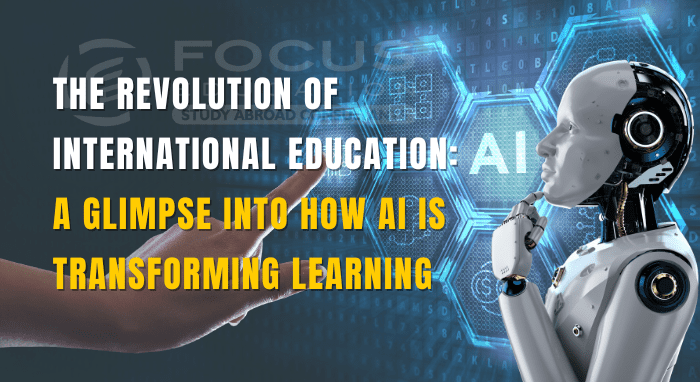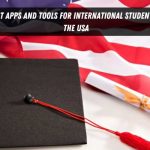In recent years, the world of education has undergone a remarkable transformation, with Artificial Intelligence (AI) playing an essential role in reshaping traditional models of learning.
The impact of AI is particularly evident in international education, where technological advancements are breaking down barriers and creating new opportunities for students across the globe. Let us explore the profound changes AI is bringing to the landscape of international education and how it is revolutionizing the way we teach and learn.
1. Personalized Learning:
One of the most significant contributions of AI to international education is its ability to enable personalized learning experiences. Adaptive learning platforms powered by AI algorithms analyze students’ strengths, weaknesses, and learning styles to tailor educational content accordingly. This customization ensures that students receive targeted support, enabling them to progress at their own pace and address individual learning needs.
2. Language Learning and Translation:
AI-powered language learning applications are making language acquisition more accessible and efficient for international students. These tools not only provide interactive lessons but also offer real-time translation services, breaking down language barriers and fostering communication among students from diverse linguistic backgrounds. This contributes to a more inclusive and collaborative learning environment.
3. Global Collaboration and Cultural Exchange:
AI has facilitated global collaboration by connecting students from different corners of the world. Virtual classrooms, collaborative projects, and online forums powered by AI technologies enable students to work together on assignments, share cultural insights, and develop a global perspective. This nurtures cross-cultural understanding, preparing students for the interconnected and diverse world they will navigate in their future careers.
4. Predictive Analytics for Student Success:
AI-driven predictive analytics are helping educational institutions identify at-risk students and implement timely interventions. By analyzing data on students’ performance, engagement, and attendance, AI systems can predict potential challenges and provide educators with insights to support struggling students. This proactive approach enhances student success rates and contributes to a more efficient and effective education system.
5. Automated Grading and Assessment:
AI is streamlining the assessment process in international education by automating grading and feedback systems. Machine learning algorithms can evaluate assignments, quizzes, and exams, providing instant feedback to students and freeing up educators to focus on more strategic aspects of teaching. This not only saves time but also ensures more consistent and objective evaluations.
6. 24/7 Virtual Learning Assistance:
AI, coupled with Virtual Learning Assistance technologies, is reforming the immersive learning experience. International students can virtually explore historical sites, conduct scientific experiments, or participate in simulated real-world scenarios, regardless of their physical location. This 24/7 learning assistance not only fosters self-reliance but also ensures that students have access to help precisely when they need it. This fosters a more engaging and interactive learning environment, transcending the limitations of traditional classroom settings.
Unquestionably, AI is revolutionizing the world’s educational landscape through a range of cutting-edge technologies. The transformative power of AI in international education is undeniable.
From personalized learning experiences to breaking down language barriers and fostering global collaboration, AI is reshaping the way we approach education on a global scale. As we embrace these technological advancements, educators, institutions, and policymakers must work collaboratively to ensure that the benefits of AI are committed ethically and inclusively, providing every student with the opportunity to thrive in the ever-evolving scene of international education.



